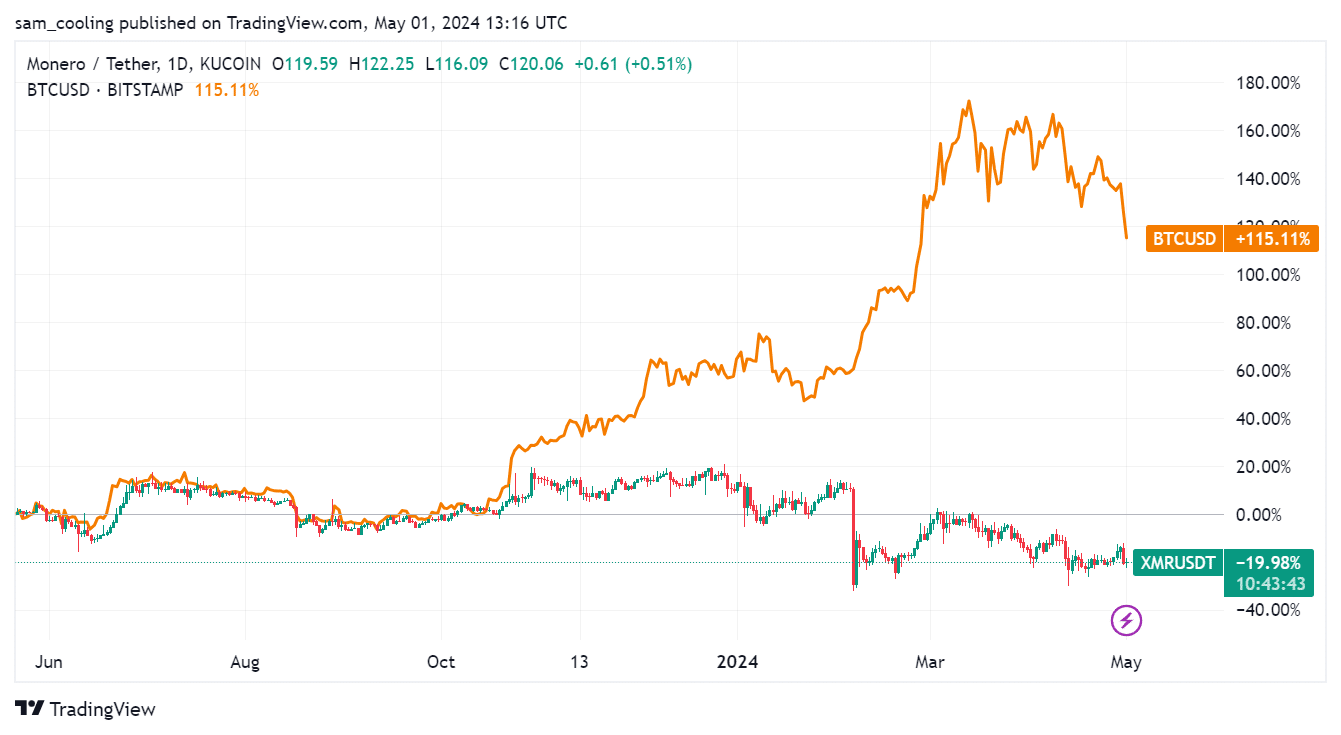Cryptoassets are a high-risk asset class. This article is for informational purposes only and does not constitute investment advice. You could lose all your capital.

Top after XMR developer Luke 'Kabaya' Parker reveals Full Chain Membership Proof (FCMP), which aims to increase anonymity across the network and drive up the price of XMR. Privacy coin Monero (XMR) is scheduled for a major update.
Monero is one of the earliest cryptocurrencies. Created as a peer-to-peer crypto similar to Bitcoin, the network further enhances its main selling point: privacy.
However, despite this unique value proposition, evolving regulations and regulatory pressure on supportive exchanges like Binance have pushed Monero into a corner.
FCMP Update Description: Replacement of Ring Signatures with Monero (XMR)
Nevertheless, this does not prevent developers from further improving the source code and releasing updates.
On April 27th, Monero developer Luke “Kayaba” Parker said: announced New enhancement: Full-Chain Membership Proofs (FCMP).
Parker said in a blog post that the technology aims to further improve the anonymity of Monero coins, expanding the anonymity set from 16 to the entire network.
This is an improved version of the ring signature that has long been a signature feature of Monero.
When a user sends XMR, the ring signature contains the user's key along with several other public keys, creating a large “ring” of potential senders.
This “ring” anonymizes XMR transactions, giving it an advantage over similar Bitcoin and Litecoin.
While ring signatures are the basis of Monero, they are susceptible to vulnerabilities such as Exchange Attack Everywhere (EAE) attacks.
Here, the attacker reduces the anonymity set of the ring signature, increasing the likelihood of identifying the sender. This is especially true if the sender uses the same address multiple times.
Discover: How to Buy Bitcoin Anonymously Without ID (No KYC) – Best Ways in May 2024
FCMP replaces the existing ring signature system and fixes existing weaknesses.
With FCMP, the network automatically proves that spending outputs originate from outputs within the blockchain, further increasing the anonymity of XMR transactions.
According to the developers, every input will boast an anonymity set of 100 million, which is more than the current 16 ring signature offering.
How does Monero plan to release FCMP?

(XMRUSDT)
Developers have proposed two ways to integrate FCMP.
- Incorporation into Seraphis: Seraphis has two types of output. One is “Membership” which is the same output, and the other is “Spending Authorization” which allows the sender to use the output. Thanks to Seraphis, Monero can efficiently use proofs such as the originally proposed “Grootle” proof consisting of a ring of 128 signatures.
- Release of FCMP++. The proposal was released in March 2024 in response to spam attacks. This version provides an independent path for enhanced privacy. FCMP++ combines “consumption authorization and linkability”. This eliminates the dependency on Seraphis without requiring a complete protocol migration.
With this in mind, the Monero team plans to deploy core FCMP functionality first.
therefore, The release of wallet code supporting additional features will be postponed. The goal is not to rush developers, but to avoid unnecessary hard forks and defects.
Explore: American Coin Price Analysis: Latest PoliFi Pumps Take America to the Moon
Disclaimer: Cryptocurrency is a high-risk asset class. This article is for informational purposes only and does not constitute investment advice. You could lose all your capital.

